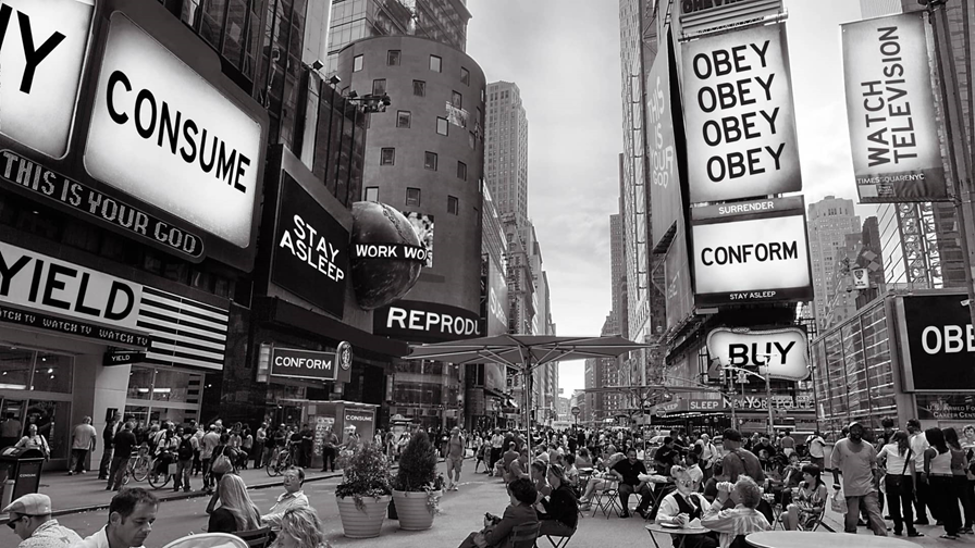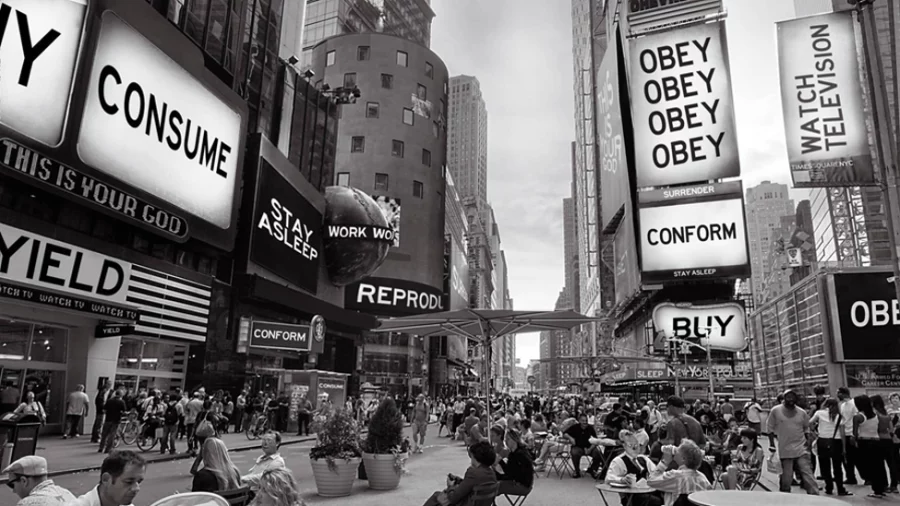
BLOG 1 : CHLOE CHAMBERS
The Culture Industry is something that dominates, manipulates, and subdues the public, and with technology, it is only going to grow; hence, instead of industry, it is more like captivity. The name implies culture is the good being sold, but in reality, the consumers have become the product. The way people perceive, consume, and react to culture, media, and art have all been commodified, as mentioned in the week 2 lecture, “It impedes the development of autonomous, independent individuals who judge and decide consciously for themselves.” (Adorno, 1992: 91–2). This inevitably leads to negative consequences, like false information and propaganda, or even an overwhelming stream of negative news. In Media and Cultural Studies: Keyworks, “For the present the technology of the culture industry confines itself to standardization and mass production and sacrifices what once distinguished the logic of the work from that of society” (Durham 42). When people stop learning to think for themselves or critically, it reduces their ability to understand or see the whole picture, which in turn gives people a sort of complicity in the way things are, as it is now standard and accepted. I think that overall, the Culture Industry is negative, but in very few situations can it be beneficial. For Instance, standardization can help keep out unnecessary noise. I think an interesting example of the Culture Industry in my eyes would be the American Dream, the idea that anyone and everyone can make it as long as they work hard. It does not exist to me; it is impossible, while others are welcome to disagree, people can no longer support themselves with even multiple jobs. Simultaneously, the biggest voices in media call my generation lazy. They pacify the ones who can change things by calling us the problem and distracting the public with other unimportant news or shocking news, but never truly trying to find a solution to anything. I think a solution could be laws. I am not saying to get rid of free speech, but maybe make it so, just like when you write a paper in school, you show your sources or have a little bit of the opposing view mentioned. I think leaving all the power of media, art, and culture to money-hungry, heavily biased businesses that control how people think and view things is irresponsible. Like, even I benefit from the culture industry directly with my major in graphic design. These standardized ways of thinking and producing help when deciding the color, shape, font, or accessibility of a product. But the culture industry has commodified, manipulating the public to a dangerous degree, keeping the public trapped in captivity. Even with the mass of information out there, you can still be trapped in a bubble, inexperienced and unaware. I will finish with this quote: “Culture today is infecting everything with sameness. Film, radio, and magazines form a system. Each branch of culture is unanimous within itself, and all are unanimous together” (Durham 41). The culture industry is very different, and even within those different avenues, it can not make up its mind.
References
Durham, Meenakshi Gigi, and Douglas Kellner. Media and Cultural Studies : Keyworks . Edited by Meenakshi Gigi Durham and Douglas Kellner, Rev. ed., vol. Keyworks in cultural studies, Blackwell, 2006.
https://www.shalonvantine.com/secondasfarce/2020/2/21/adorno-and-the-culture-industry – Photo
Extra Quotes I Thought Were Interesting:
- “Nevertheless, the culture industry remains the entertainment business. Its control of consumers is mediated by entertainment, and its hold will not be broken by outright dictate but by the hostility inherent in the principle of entertainment to anything which is more than itself” (Durham 51).
- “Culture is a paradoxical commodity. It is so completely subject to the law of exchange that it is no longer exchanged; it is so blindly equated with use that it can no longer be used. For this reason it merges with the advertisement. The more meaningless the latter appears under monopoly, the more omnipotent culture becomes. Its motives are economic enough. That life could continue without the whole culture industry is too certain; the satiation and apathy it generates among consumers are too great. It can do little to combat this from its own resources. Advertising is its elixir of life” (Durham 68).
- “Through the language they speak, the customers make their own contribution to culture as advertising” (Durham 69).
- “The emphasis on the heart of gold is society’s way of admitting the suffering it creates: everyone knows that they are helpless within the system, and ideology must take account of this. Far from merely concealing the suffering under the cloak of improvised comradeship, the culture industry stakes its company pride on looking it manfully in the eye and acknowledging it with unflinching composure” (Durham 61).
- “The more strongly the culture industry entrenches itself, the more it can do as it chooses with the needs of consumers – producing, controlling, disciplining them; even withdrawing amusement altogether: here, no limits are set to cultural progress” (Durham 56).
- “The culture industry endlessly cheats its consumers out of what it endlessly promises” (Durham 53).

